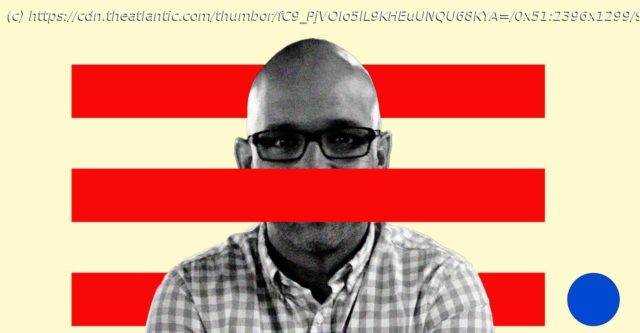Matt Hawn taught his students in Blountville, Tennessee, about the concepts of white privilege and racism. Then he lost his job.
The first time Matt Hawn suspected that he might run into trouble for what he was teaching was last August. His contemporary-issues class was discussing the events in Kenosha, Wisconsin, where protesters had taken to the streets after a police officer was filmed shooting 29-year-old Jacob Blake in the back. Hawn showed his students a picture of Kyle Rittenhouse, the 17-year-old accused of killing two people and injuring another during the protests, to demonstrate the concept of white privilege. “What are we going to do about racism in the U.S.?” he asked his students. The principal of Sullivan Central High School, where Hawn taught, pulled him aside at a football game. Apparently, Hawn had mistakenly posted the images from his contemporary-issues class to another class he taught on personal finance. A parent had seen the materials and complained. Hawn corrected his error and apologized. A couple of weeks later, he heard from a county official, warning him that teachers are expected to provide students with access to varying points of view. “Of course,” Hawn replied. By October, the August lesson was circulating among students and parents on Facebook. Then, in January, a group of rioters took over the U.S. Capitol. Hawn wasn’t quite sure how to talk to his students about what had happened, so he decided to focus on the 2016 election instead. He assigned an Atlantic article by Ta-Nehisi Coates, “The First White President,” which argues that Donald Trump was elected on the strength of white grievances. A parent complained about the slurs used in the piece and accused Hawn of not presenting multiple points of view. The central office issued an official reprimand. In April, to address the trial of the Minneapolis police officer Derek Chauvin for the murder of George Floyd, Hawn showed his students a performance by the poet Kyla Jenée Lacey, titled “White Privilege.” A couple of weeks later, Hawn received notice that the director of schools wanted him fired. “There has been a lot of talk online that accuses me of moving to dismiss Mr. Hawn because he taught anti-racism lessons,” said David Cox, then the Sullivan County director of schools, at Hawn’s dismissal hearing. “Sullivan County Schools and I in no way condone racism of any kind.” (The school district declined to comment further for this story.) Hawn is now contesting his dismissal. In a hearing yesterday, Ingrid Deloach, the assistant director of Sullivan County Schools, described what she perceived as “a hint of disrespect, and a very strong sense of arrogance” in Hawn’s attitude. Coates’s article “was a very liberal perspective,” she said, and although strong perspectives are appropriate for a contemporary-issues class, “maybe a more conservative stance would have been an appropriate alternative.” Because the hearing is on-going, Hawn limited what he was willing to tell me: He claimed that he never told school officials that “there is no credible source for a differing point of view” than Coates’s assessment of Trump, but he would not elaborate on why the district’s letter of reprimand states that he did. Tennessee recently passed anti–Critical Race Theory legislation, banning educators from teaching students that any individuals are “inherently privileged, sexist, or oppressive” based on their race or sex. This may have shaped the environment around Hawn’s firing; the bill was approved by the legislature shortly before Hawn received notification of his dismissal. But the teacher was cagey about assigning political motives to school officials out of fear that they could use that against him in future hearings. All of this is intensely personal: Hawn was raised in Kingsport, one of the three cities nestled near the Appalachian Mountains that anchor Tennessee’s northeast diagonal point. His parents also grew up in this community. He is contesting his dismissal because Sullivan County is where he wants to teach, and he hopes to be back in the classroom in the fall. But significant barriers lie ahead. I spoke with Hawn about how he got here and what comes next for him and education in his state. Our conversation has been condensed and edited for clarity. Emma Green: When you were growing up, was there a lot of racial diversity around you? Matt Hawn: There was not. I don’t remember there being a nonwhite person at my high school the entire four years I was there. Green: What kinds of lessons were you taught, either implicitly or explicitly, about race? Hawn: We were taught the civil-rights movement, the differences in the Student Nonviolent Coordinating Committee and the more quote-unquote militant Black Panthers. But that was really about it. Looking back now—and I just came across this term within the last 10 or 15 years—I was taught the “Lost Cause” fallacy: Slavery was a benevolent institution. The Civil War wasn’t fought over slavery but for states’ rights.






